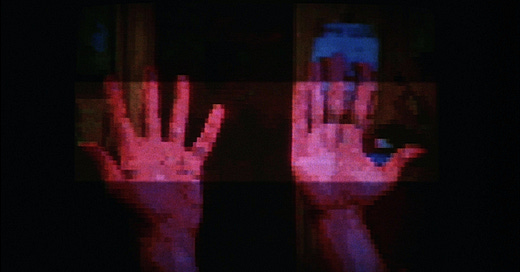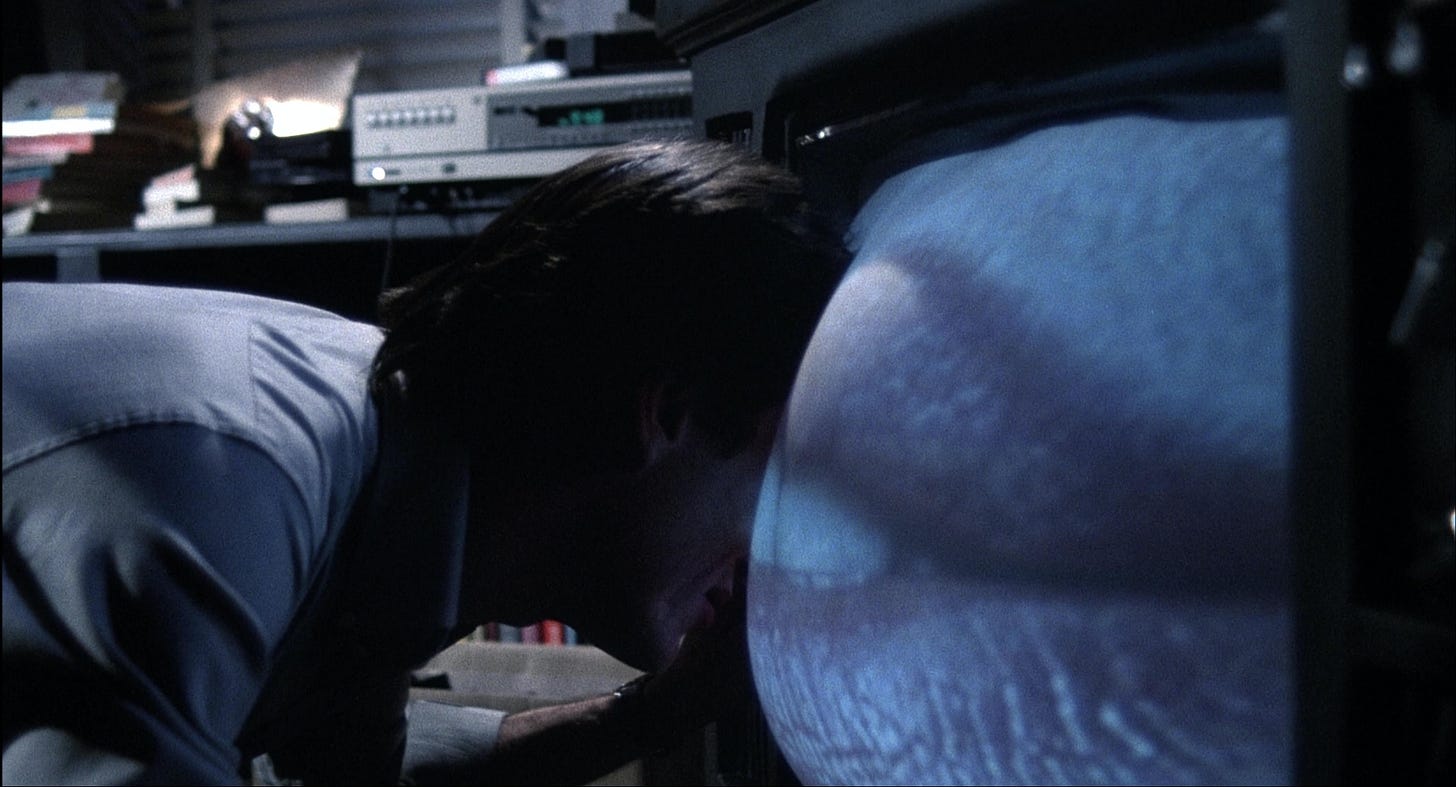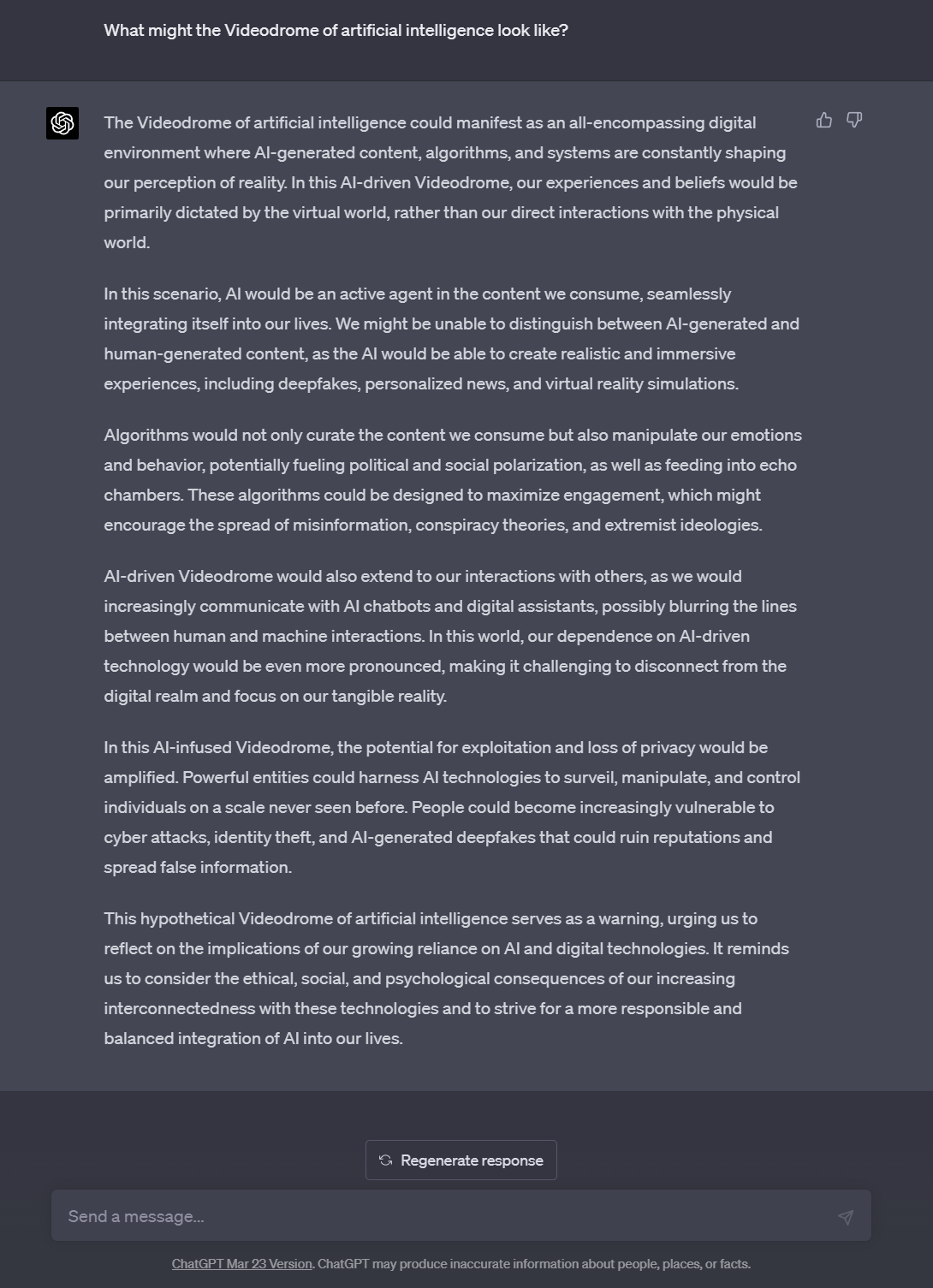Though now dated in many regards Videodrome, Cronenberg’s 1982 nightmare of television paranoia was prescient in others.
The film’s paranoia regarding TV and video reflect particular concerns that seem to have faded since the 80s, or at least morphed in form. No longer do we worry that subliminal signals might be broadcast over airwaves in order to “program” viewers’ behavior. Instead we talk of how AI-generated-and-algorithm-served misinformation fuels extremist political movements. The language has changed, but the concerns are similar, and perhaps these days, even more legitimate. The theoretical programming that haunted the 80s has become more literal 40 years later.
When Max Renn’s is questioned on why his TV station “Civic TV” offers content that appeals to viewers “baser” instincts he says “It's a matter of economics.” That’s the argument many contemporary media critics have made for why extremist, angry, sensational, and polarizing content dominates our online spaces. When people get paid more for things that gets more attention and what gets our attention is what makes us angry and disgusted, what do we expect to thrive? It’s a matter of economics.
But what I think Videodrome, despite its messy plot, gets right is less in its explicit commentary, and more in its depiction of how “video” (replace video here for any digitally transmitted media, and the film almost seems prophetic on some fronts) becomes embedded in us. How it becomes our reality and leaves our reality feeling less than. As the film’s Dr. Brian O’Blivion says in one of his many pre-recorded monologues:
“The television screen is the retina of the mind's eye. Therefore, the television screen is part of the physical structure of the brain. Therefore, whatever appears on the television screen emerges as raw experience for those who watch it. Therefore, television is reality, and reality is less than television.”
Ah yes, hyperreality.
Television screens are not just passive surfaces upon which images appear. The lines between our own tangible reality and the reality we consume through media is much more porous than we care to admit. At least, it is to our mind’s experience. I think we often vastly overestimate our mind’s ability to disentangle what we experience digitally from what we experience in reality. I’ve argued just the sheer amount of video we now consume can alter the way we view the world.
We are already cyborgs of a kind, we simply maintain plausible deniability by not physically binding our digital elements to our physical bodies. Cronenberg created horror by imagining the television becoming alive, by imagining us becoming the television. What if we did the same for our smartphones and computer screens?
How many of us have felt the almost physical pull that can be felt when your ever-present digital tether accidentally becomes severed? If you don’t know the feeling I’m talking about, lock your phone in a box for a day and see how you feel.
“Your reality is already HALF video hallucination. If you're not careful, it will become TOTAL hallucination. You'll have to learn to live in a very strange new world.”
-Dr. O’Blivion
Long live the new flesh.
Special thank you to my patrons for their direct support of my work.





